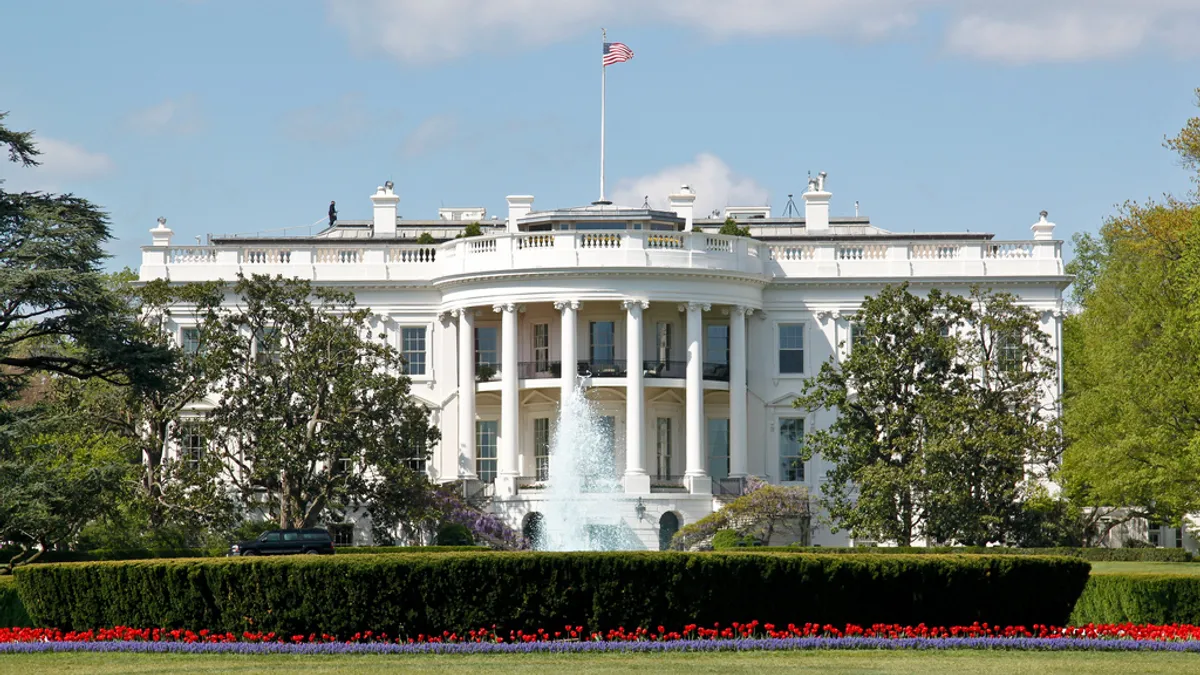Dive Brief:
- New changes to the H-1B visa program could deter international students from studying in the U.S. and complicate hiring for colleges, legal experts say.
- The Trump administration's overhaul of the visa program for highly skilled workers narrows its eligibility requirements and increases how much U.S. organizations must pay foreign employees.
- It's part of the administration's broader effort to limit foreign nationals' ability to work and study in the country.
Dive Insight:
In 2017, the White House issued an executive order asking the Labor and Homeland Security departments to put forward new rules and guidance around immigration policy, including the H-1B visa program. The U.S. issues up to 85,000 H-1B visas annually; there is no limit on how many can be offered in the higher education field.
The new rules, which the departments published in the Federal Register on Thursday, make several changes that could affect international students' interest in U.S. colleges as well as institutions' ability to recruit researchers and instructors, legal experts say.
The potential to work in the U.S. is a "driving factor" among students coming to the country for college, Jenny Lee, an education policy professor at the University of Arizona, told Education Dive in an email.
H-1B visas allows U.S. companies to temporarily employ foreign workers in specialty fields, which it defines as those requiring at least a bachelor's degree, or its equivalent, and highly specialized knowledge. Under the new rules, H-1B visa applicants would be required to show a "direct relationship" between their degree and the job they'd be doing.
Making that connection will be easy in some fields, such as law and medicine, the Homeland Security Department regulation notes. But for fields in which the link is "less readily apparent," the rule states, the applicant may need to provide documentation, such as the coursework comprising their degree and their job responsibilities.
Schools are already seeing an increase in requests for evidence in H-1B applications under the current protocol, said Sarah Spreitzer, director of government and public affairs at the American Council on Education. Fulfilling them can cost employers as much as $4,500 in legal expenses, the National Foundation for American Policy estimated in an April 2019 brief.
Lee expects the new rule will lead to greater demand for applied majors in fields like business and engineering.
The Labor Department's rule, meanwhile, increases how much employers must pay workers hired through the program. That stands to be "extremely problematic" for colleges as they contend with pandemic-induced budgetary problems, Spreitzer said.
These changes are part of the administration's broader effort to clamp down on visas. And they come as the U.S. sees continued decreases in new international students, though Optional Practical Training participation has risen in recent years.
The Trump administration in June suspended applications for H-1B and other temporary work visas through at least year-end. (That decision is currently being contested in the courts.) And in September, it proposed regulations that would place a time limit on student visas and raise the level of scrutiny for extensions.
The Labor Department's rule takes effect immediately and Homeland Security's takes effect Dec. 7. The department pitched the changes as a way to protect U.S. workers, and said the pandemic's economic impact gave them reason to forgo the typical comment period.
But Stephen Yale-Loehr, who teaches immigration law at Cornell University, encouraged institutions to file comments, which, he said, "can help establish a record of why this rule should not have come out without first allowing comments."














